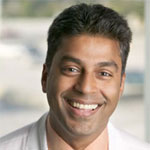The diagnosis of heart failure is one of the most dreaded your cardiologist can deliver. It carries with it a prognosis that is worse than most cancers. It is the final common pathway by which the heart fails to meet the needs of the body. As a result one feels shortness of breath, congestion in the lungs, swelling of the legs, generalized fatigue, weight gain and arrhythmias.
To make the diagnosis of heart failure in addition to a thorough examination, your cardiologist will often order an EKG, chest x-ray, echocardiogram, and sometimes a heart catheterization or cardiac MRI. Normally the main chamber of the heart (left ventricle) pumpsabout 60% of its blood content with each beat.
This is called the ejection fraction (EF). Although some heart failure occurs in the setting of a normal ejection fraction and a stiff ventricle (diastolic) most are due to weakening. An ejection fraction of less then 35% usually results in heart failure symptoms.Treatment for heart failure often involves educating the patient.
Normally we encourage people to drink lots of water but in heart failure the patient must greatly restrict their fluid and sodium intake. We monitor fluid retention by using a scale to weigh themselves daily. Based on this one can adjust their diuretic dose which will get rid of the fluid but at the expense of drying out the kidneys.
All heart failure patients need to be on a number of medications that will gradually increase the ejection fraction. The most important of these are beta blockers (carvedilol, metoprolol). Subsequently an ACE inhibitor or ARB (but not both) are added. Finally a medication called spironolactone is needed.
Since these medications can affect blood pressure, heart rate, and the kidneys, they need to be monitored closely. These medications are truly wonder drugs having taken patients on the verge of heart transplantation to being able to lead a healthy and energetic life !Despite our best efforts some patient’s heart function does not improve.
In this setting we often move to device therapies. These include ICDs (implantable cardioverter defibrillators), CRTs (cardiac resynchronization therapy) and VAD’s (ventricular assist device). The latter is essentially a mini artificial heart powered by batteries that the patient carries in an attached backpack! The final option is receiving a heart transplantation.
This is unfortunately restricted by donor supply and therefore I encourage everyone to consider registering as a donor.Of course, the best treatment for heart failure is not developing it at all. Some forms of heart failure are congenital, viral, or the undesirable side effect of chemotherapy.
These cannot be avoided but the majority are related to risk factors (hypertension, diabetes) and lifestyle choices (smoking, inactivity) that we make each day. Let’s continue our success in heart failure by preventing its presentation


